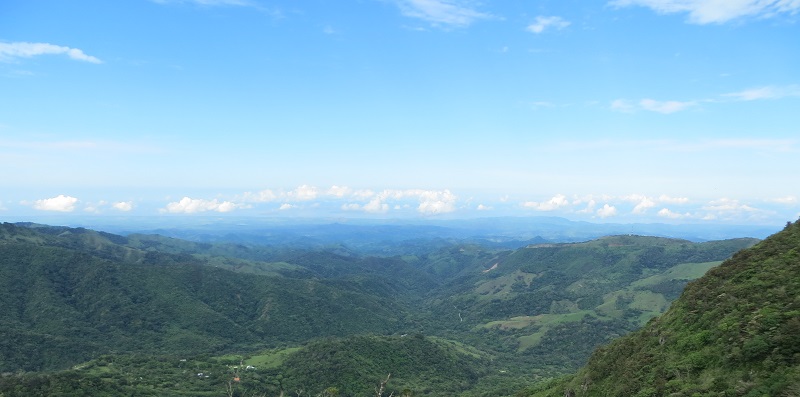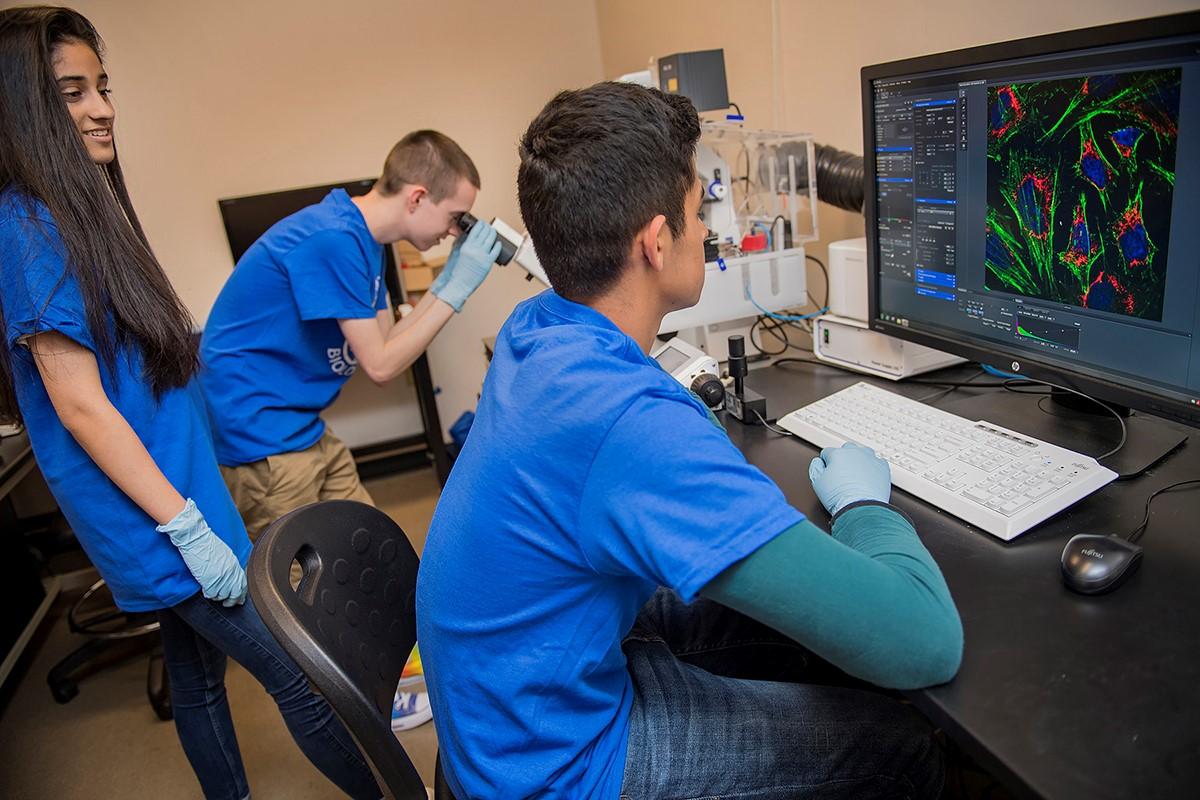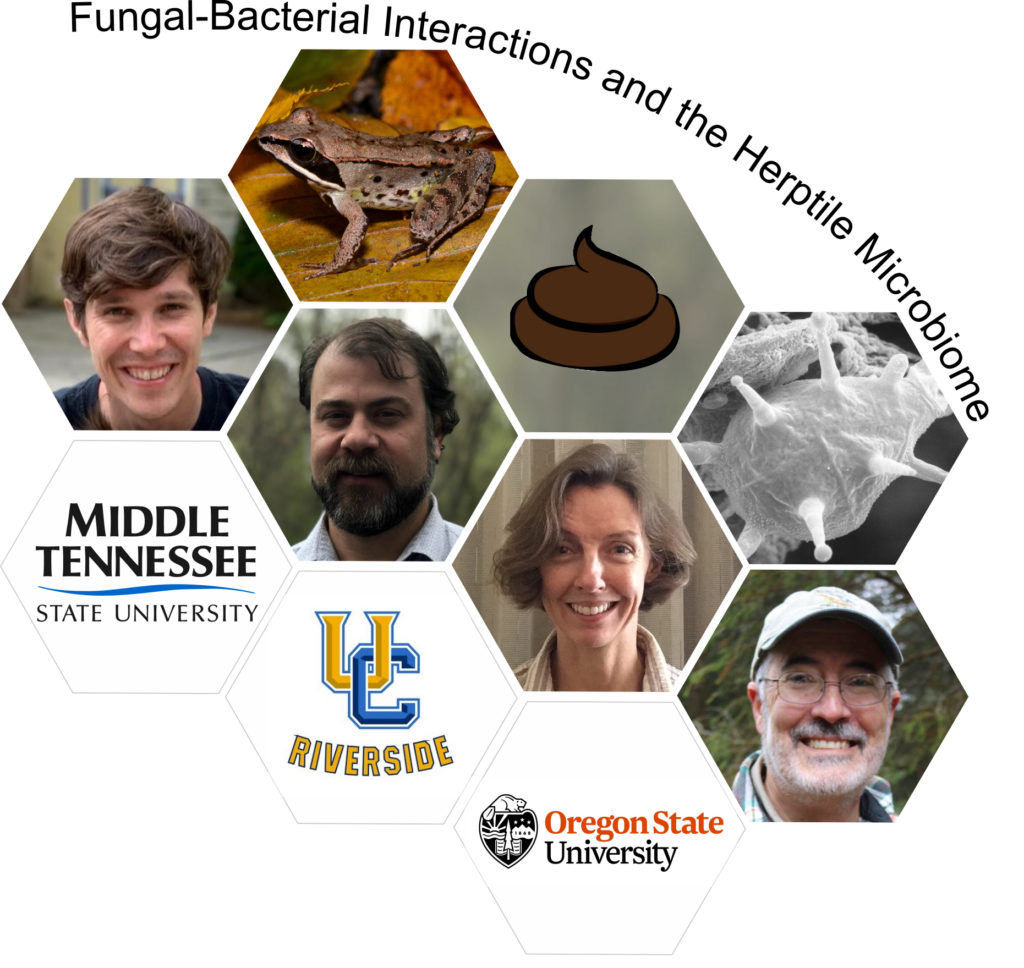Department of Biology
Research Domains – Department of Biology
Environmental Toxicology
Faculty in the Environmental Toxicology domain investigate the fate and adverse effects of contaminants and stressors in the environment. Projects have implications from individual to ecosystem level and involve a wide range of organisms ranging from microbes to plants and animals. Specific interests include groundwater and surface water quality, contaminant transport within and between aquatic and terrestrial systems, and impacts of pharmaceuticals in aquatic systems. Through collaboration with government agencies and private industries, students working in this area are exposed to a variety of projects and scientists.
- Frank Bailey, Professor
Aquatic toxicology
Biology Education
Faculty in this domain conduct research to build fundamental theory and collect evidence for effective teaching practices in biology. The ultimate goal of faculty in this focal area is to improve biology education in both formal and informal contexts. Research in this area relies disciplinary knowledge of biology as well methods and frameworks from science education research, the learning sciences, the social sciences, cognitive science, as well as educational psychology. Specific research strands with in our group include: 1) research into the teaching and learning of environmental science, 2) uncovering instructional beliefs and how these beliefs translate to classroom practices aligned with current empirically-supported teaching methods, 3) impacts of professional development on instructional beliefs and practices, and 4) developing ways to create an inclusive science community and foster positive attitudes towards science, especially towards important topics in biology that may be controversial in the classroom including evolution, climate change, and vaccines.
- M. Elizabeth (Liz) Barnes, Assistant Professor
Science Education - Grant Gardner, Associate Professor
Science education - Michael Rutledge, Professor
Biology education; Evolution - Kim Sadler, Professor
Biology education; Environmental education - Rebecca Seipelt-Theimann, Professor
Genetics; Gene expression; Science education
Genetics and Biotechnology
The Genetics & Biotechnology Domain is both a basic and an applied research field where our faculty use a combination of DNA analysis and manipulation tools to discover new information, create novel products, and solve real-world problems. More specifically, tools and topics of interest include genetic barcoding/fingerprinting for identifying species and determining inheritance patterns, studying genetic regulation and gene expression, identifying functions of novel genes and proteins, genetic engineering and molecular cloning, and “omics” scale investigations of genomics, transcriptomics, and bioinformatics.
- Elliot Altman, Professor
Metabolic engineering - Sarah Bergemann, Professor
Mycology; Evolutionary Ecology - Matt Elrod-Erickson, Associate Professor
Protein transport; Cell division - Mary Farone, Professor
Microbiology; Genomics - Jason Jessen, Professor
Cell polarity; Embryonic development - David Nelson, Associate Professor
Cell signaling; Mitophagy - J. Brian Robertson, Associate Professor
Microbial engineering; Biotechnology tool development - Rebecca Seipelt-Thiemann, Professor
Gene regulation; RNA splicing; Bioinformatics - Donald Walker, Assistant Professor
Host-microbiome-pathogen interactions; Mycology; Wildlife disease - April Weissmiller, Assistant Professor
Molecular genetics; Transcription; Cancer/oncogenetics
Physiology
Researchers in this domain utilize a broad range of modern investigative tools, including live cell microscopy, transcriptomics, and mathematical modeling to study physiological processes occurring at the level of individual cells through to whole organisms. Their interests range from understanding the processes that govern the autophagic removal of damaged cellular organelles and the movement of cells during early development through to the regulation of body temperature in ectothermic animals. Through these studies, faculty in this domain address issues associated with human health in the areas of infectious disease, developmental disorders, neurodegeneration, and cancer.
- Vincent Cobb, Professor
Behavioral and physiological ecology; Thermal biology; Herpetology - Jason Jessen, Professor
Cell, molecular, and developmental biology; Cell polarity and migration - Matt Klukowski, Professor
Animal physiology; Endocrinology; Behavior; Herpetology - David Nelson, Associate Professor
Cell and molecular biology; Signal transduction; Mitophagy; Innate immunity - Kiel Ormerod, Assistant Professor
Neurophysiology; Muscle contraction; Invertebrate biology; Neurodegenerative disorders - William Stewart, Professor
Cell physiology and biology; Neurobiology - April Weissmiller, Assistant Professor
Molecular genetics; Transcription; Cancer and oncogene
Microbiology
Faculty in Microbiology are united by a common interest in the biology and ecology of microbes (viruses, bacteria, archaea, fungi, and protists). Faculty in this group use combinations of traditional culture-based microbiology along with biochemical, molecular, and metagenomic techniques to explore the evolutionary biology and biochemistry of microbes, as well as the ecology of these organisms in their environments, including host-microbe relationships.
- Sarah Bergemann, Professor
Mycology; Evolutionary ecology - Anthony Farone, Professor
Immunology; Microbiology - Mary Farone, Professor
Microbiology; Biotechnology - Jeff Leblond, Professor
Phycology; Evolutionary biology; Biochemistry - Anthony Newsome, Professor
Microbiology; Parasitology - J. Brian Robertson, Associate Professor
Microbial physiology; Biological rhythms; Bioluminescence - Rebecca Seipelt-Thiemann, Professor
Genetics; Gene expression - Donald Walker, Assistant Professor
Host-microbiome-pathogen interactions; Mycology; Wildlife disease
https://walkerlabmtsu.weebly.com/
Organismal Biology, Ecology and Evolution
Researchers in this domain use field-based methods, along with laboratory and computational approaches, to study the origin, distribution and loss of biodiversity across broad temporal and geographic scales. Faculty focus on the structure, function and physiology of a broad array of organisms: from algae, fungi and plants to fishes, reptiles and amphibians. These studies play a central role in answering questions about the ecology and evolution of organisms as well as their conservation. The faculty integrate their studies to additionally address issues in behavioral ecology, climate change, evolutionary ecology and history, population dynamics, community ecology, and wildlife diseases.
- Jessica Arbour, Assistant Professor
Morphology; Macroevolution; Ichthyology - Frank Bailey, Professor
Aquatic toxicology - Sarah Bergemann, Professor
Mycology; Evolutionary ecology - Vincent Cobb, Professor
Behavioral and physiological ecology; Thermal biology; Herpetology - Chris Herlihy, Associate Professor
Plant mating system evolution; Cedar glade ecology - R. Stephen Howard, Professor
Evolutionary ecology; Population biology - Matt Klukowski, Professor
Animal physiology; Endocrinology; Behavior; Herpetology - Jeff Leblond, Professor
Phycology; Evolutionary biology; Biochemistry - Brian Miller, Professor
Morphology and natural history; HerpetologyR - Jeffrey Walck, Professor
Plant ecology and conservation; Climate change; Seed ecology; Cedar glade ecology - Donald Walker, Assistant Professor
Host-microbiome-pathogen interactions; Mycology; Wildlife disease https://walkerlabmtsu.weebly.com/
Forensic Science
Researchers in Forensic Science domain examine and analyze evidence from crime scenes to assist in forensic investigations and legal issues. Specific interests of the faculty include (1) devising and validating methods of human identification from human skeletal remains, (2) investigating taphonomic factors and their effects on human decomposition, and (3) elucidating recovery strategies for skeletal and material evidence at a crime scene with scientific integrity. Faculty collaborate with various external forensic agencies and participate in forensic case consultation and court testimony upon request.
- Frank Bailey, Professor
Toxicology
Follow Us!

May 2023 Biology Study Abroad - Costa Rica!
Department Office | Science Building, Room 2044
Office Hours | M - F 8:00 - 4:30
Phone | 615-898-2847
Fax | 615-898-5093
Email | biology@mtsu.edu

